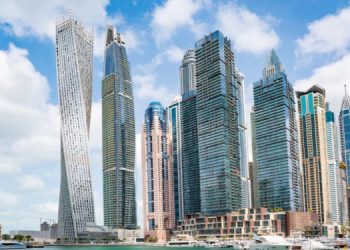KYIV, Ukraine (news agencies) — In war-torn Ukraine, he is Alya Shabaanovich Gali, a popular doctor with a line of patients waiting to see him. To his family thousands of kilometers away in the besieged Gaza Strip, he is Alaa Shabaan Abu Ghali, the one who left.
For the past 30 years, these identities rarely had cause to merge: Gali moved away amid instability in Gaza, settled into his new home in Kyiv, adopted a different name to better suit the local tongue, and married a Ukranian woman. Through calls, he kept up with his mother and siblings in Gaza’s southernmost city, Rafah. But mostly, their lives played out in parallel.
In February 2022, Russia’s invasion of Ukraine threw Gali’s life into chaos, with air raids and missile attacks. Nearly 20 months later, the war between Israel and Hamas turned his hometown into a hellscape, uprooting his family.
Both are violent conflicts that have upset regional and global power balances, but they can seem worlds apart as they rage on. Ukraine has lambasted allies for coming to Israel’s defense while its own troops languished on the frontlines. Palestinians have decried double standards in international support. In each place, rampant bombardment and heavy fighting have killedtens of thousands and wiped out entire towns.
In Gali’s life, the wars converge. A month ago, his nephew was killed in an Israeli strike while foraging for food. Weeks later, a Russian missile tore through the private clinic where he’s worked for most of his professional life. Colleagues and patients died at his feet.
“I was in a war there, and now I am in a war here,” said Gali, 48, standing inside the hollowed-out wing of the medical center as workers swept away glass and debris. “Half of my heart and mind are here, and the other half is there.
“You witness the war and destruction with your family in Palestine, and see the war and destruction with your own eyes, here in Ukraine.”
There’s an Arabic saying to describe a family’s youngest child — the last grape in the bunch. Gali’s mother would say the last is the sweetest; the youngest of 10, he was her favorite.
When Gali was 9, his father died. Money was tight, but Gali excelled in school and dreamed of becoming a doctor — specializing in fertility, after seeing relatives struggle to conceive.
In 1987, the first Palestinian intifada, or uprising, erupted in Gaza and the West Bank. Gali joined the youth arm of the Fatah Movement, a party espousing a nationalist ideology, long before the Islamist Hamas group would take root. One by one, friends were arrested and interrogated; some went to prison, others took up arms.
Gali had a choice: Stay and risk the same fate, or leave.
There was good news: an opportunity to study medicine in Almaty, Kazakhstan. Gali bade tearful goodbyes to his family, not knowing if he’d see them again.
He traveled to Moscow, expecting to catch a train. Instead, he learned Almaty was no longer an option. But there was a spot in Kyiv.
And so a young Gali arrived in Ukraine in 1992, just after the Soviet Union’s collapse.
It was like leaving one bedlam for another, he said: “The country was in a state of chaos, with no law and very difficult living conditions.”
Many peers left. Gali stayed, enrolling in medical school.







